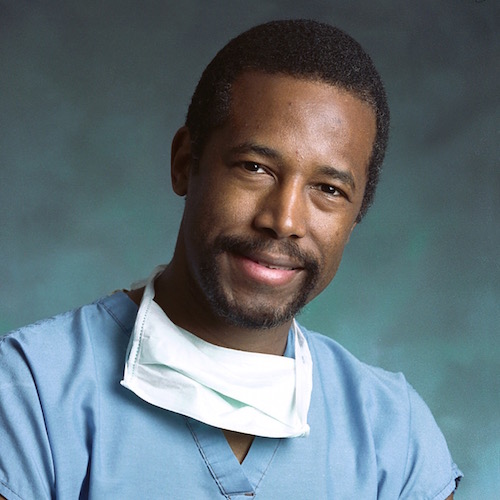 Evolution
Evolution
 Intelligent Design
Intelligent Design
 Medicine
Medicine
Doctors and Evolution

In an almost charmingly naïve article, Francie Diep at Pacific Standard wonders, “Why Do Some Doctors Reject Evolution?” Her news peg is Republican presidential hopeful Ben Carson, a neurosurgeon who has expressed reservations about Darwinian accounts of evolution — though I don’t know that anyone has questioned him sharply and in an informed way about his ideas on the subject.
Miss Diep is perplexed: “We assumed such beliefs would be unusual among doctors.” Not so, she discovered.
[W]hen Pacific Standard talked to doctors, many didn’t find their colleagues’ rejection of evolution unusual. “Nope, it’s not uncommon at all,” says David Gorski, a surgeon and researcher at Wayne State University. Even in the national spotlight, Carson isn’t the only high-profile politician-physician to doubt the well-established biology concept.
All of the physicians Pacific Standard talked with, both on and off the record, had the same answer to “How is it possible?”: Although doctors use many insights from biology, many don’t actually need to understand or believe in evolution correctly to do their jobs.
“Most physicians are not scientists. This is not a knock, but they’re more akin to engineers,” Gorski says. “They take science that’s already known and they apply it to a problem, the problem being making patients better.”
It’s not a knock? It sure sounds like one. The countervailing consideration is that physicians and engineers — and why not throw in computer scientists as well? — do something on a daily basis that evolutionary biologists never do. The doctor or engineer’s responsibility is to maintain, devise, or build complex systems, even from the ground up, systems that must operate continuously without fail. If the system does fail, then the physician, engineer, or computer scientist has flopped in his job. Not uncommonly, the results of such a flop can be fatal — for the patient on the operating table, for example, or the passenger in the jet airplane.
Luxuriously insulated from reality, biologists theorizing about the history of life, how it arose and developed, face no such pressure to fill in what Ann Gauger calls the “white spaces” in evolutionary thinking. (For more on that, see “The Modesty Chronicles.”) Vague stories and magic words typically substitute for detailed explanations of how biological systems could come into being through purposeless, unintelligent processes alone. It often seems that the only serious pressure that Darwinists do face is from us.
Miss Diep rolls out the usual line about how evolution is vital to biology which is vital to medicine, ergo medicine needs evolution or ought to do so. But even some hardline Darwinists admit that the practical benefits of their cherished theory are scarce.
Coincidentally, a correspondent today sends across my desk this from biologist Jerry Coyne, of Why Evolution Is True fame. Writing in Nature (“Selling Darwin“), Coyne has conceded:
[T]ruth be told, evolution hasn’t yielded many practical or commercial benefits. Yes, bacteria evolve drug resistance, and yes, we must take countermeasures, but beyond that there is not much to say. Evolution cannot help us predict what new vaccines to manufacture because microbes evolve unpredictably. But hasn’t evolution helped guide animal and plant breeding? Not very much. Most improvement in crop plants and animals occurred long before we knew anything about evolution, and came about by people following the genetic principle of ‘like begets like’. Even now, as its practitioners admit, the field of quantitative genetics has been of little value in helping improve varieties. Future advances will almost certainly come from transgenics, which is not based on evolution at all.
He wrote that in 2006 — maybe he’d be more circumspect now. But I’m not aware that anything has changed in medicine or other fields to shift a reasonable person from such a view.
Coyne, of course, believes that the importance of evolution lies in its power to explain, or explain away, not to heal or otherwise improve the quality of our lives. It’s precisely that explanatory power, as we know, that is most urgently in need of critical examination.
Photo by V. Aceveda, U.S. Air Force [Public domain], via Wikimedia Commons.
